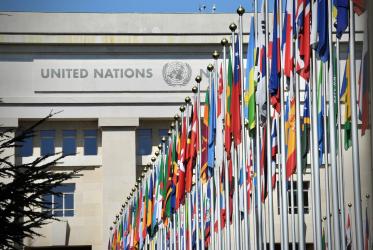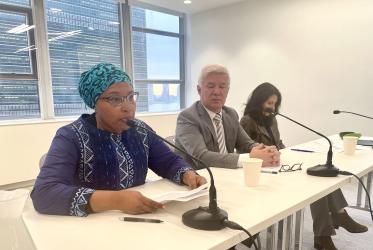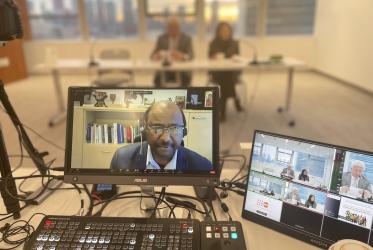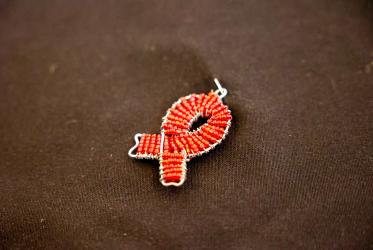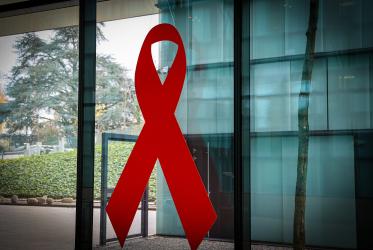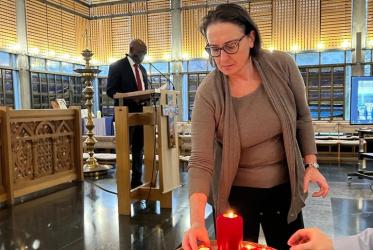Displaying 1 - 20 of 995
WCC, WHO commemorate 50 years of collaboration
04 April 2024
WCC expresses deep concern for human rights in Haiti
28 March 2024
Compêndio De Práticas Promissoras de intervenções de comunidades religiosas africanas contra o HIV em crianças e adolescentes
Sumário Executivo
23 March 2024
Compendium of Promising Practices of African Faith Community Interventions against Paediatric and Adolescent HIV
Executive Summary
23 March 2024
In Angola, WCC takes human rights approach to obstetric fistula
01 February 2024
Um Guia para as Igrejas sobre a Prevenção da Fístula Obstétrica
16 January 2024
Faith Actors Reflect on Their Role in Reaching HIV Goals at ICASA
21 December 2023
Work with HIV response calls for a table that’s honest and equal
01 December 2023
On World AIDS Day, focus on how churches can “Let Communities Lead!”
01 December 2023




